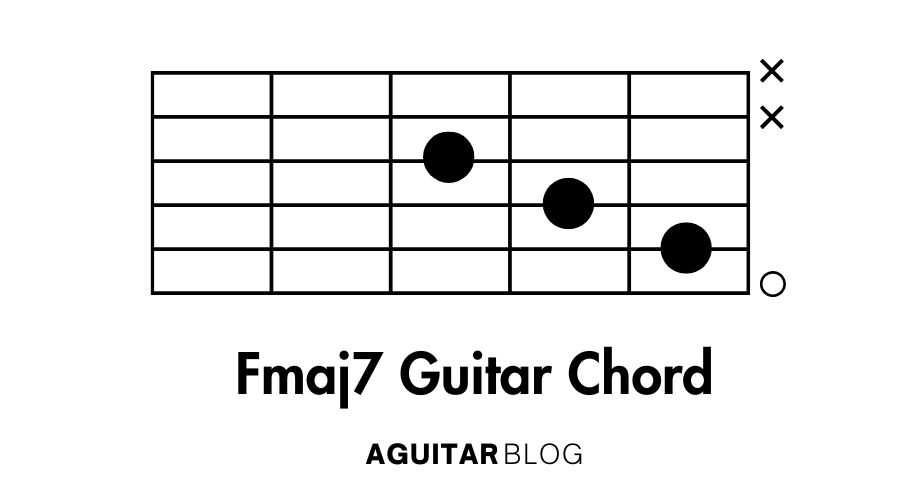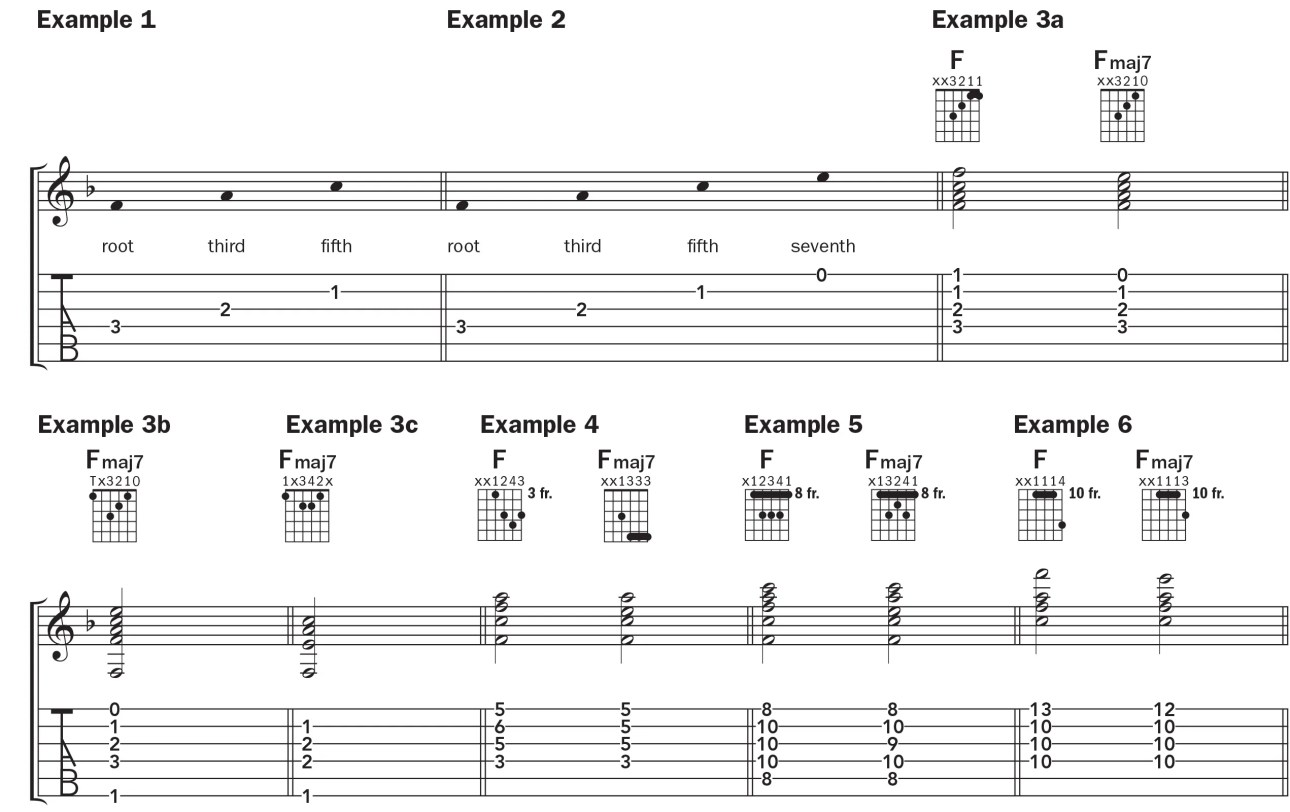The Fmaj7 guitar chord is a beautiful and sophisticated chord, widely used across various music genres from jazz and pop to rock and ballads. Known for its warm and smooth sound, the Fmaj7 not only adds richness to any song but also allows guitar players to express emotions more deeply. Let’s explore how to play the Fmaj7 chord on the guitar, adding this versatile chord to your repertoire and enhancing the appeal of every melody you play.
How to play the Fmaj7 Guitar Chord
Playing the Fmaj7 chord on the guitar can add a warm and sophisticated sound to your music. Here’s a detailed guide on how to play this chord:
Open Position Fmaj7 Chord

This is a common and relatively easy way to play the Fmaj7 chord, using open strings.
- Index Finger: Place your index finger on the 1st fret of the B (2nd) string.
- Middle Finger: Place your middle finger on the 2nd fret of the G (3rd) string.
- Ring Finger: Place your ring finger on the 3rd fret of the D (4th) string.
- Strumming: Strum from the D (4th) string down to the high E (1st) string. Do not strum the low E (6th) and A (5th) strings.
6 Ways to Play the Fmaj7 Guitar Chord
Remember, a major seventh chord consists of a major triad with a seventh added on top. Example 1 illustrates the notes in an F major triad (F A C), while Example 2 demonstrates an Fmaj7 chord (F A C E).
To transition from an F chord on the top four strings to Fmaj7, refer to Example 3a—simply play the open high E string (which adds the seventh) instead of fretting the first-fret F. In Example 3b, extend your thumb around the neck to include the root (F) on the sixth string. Continuing in the first position, Example 3c presents a jazzier alternative without utilizing the open E string.

In Example 4, we showcase how to transition from an F chord to an Fmaj7 in third position. Similarly, Example 5 illustrates the transformation using eighth-position barre chords. Keep in mind that these shapes are movable, allowing you to play them anywhere on the fretboard. For instance, shifting them up one fret gives you F#/F#maj7, and two frets up results in G/Gmaj7, and so on.
Finally, let’s conclude with a couple of voicings in tenth position, where the fifth (C) serves as the lowest note.
READ MORE: How to Play the FM7 Guitar Chord: A Step-by-Step Guide
FAQs: Fmaj7 Guitar Chord
What 4 notes make a FMaj7 chord?
The F major chord consists of the notes F, A, and C. The Fmaj7 chord adds the note E to this triad, giving it a more complex and richer sound due to the major seventh interval.
How can I add variety to my playing of the Fmaj7 chord?
Experiment with different voicings and positions on the neck. Try the barre chord version, the open position, or even different inversions to add variety to your playing.
Can Fmaj7 be used in different music genres?
Absolutely! Fmaj7 is a versatile chord used in various genres including jazz, pop, rock, and ballads. Its rich, warm tone makes it suitable for many musical styles.
What are some songs that use the Fmaj7 chord?
Many songs across different genres use the Fmaj7 chord. Some examples include “Blackbird” by The Beatles, “Dreams” by Fleetwood Mac, and “Isn’t She Lovely” by Stevie Wonder.
Mastering the Fmaj7 chord on the guitar opens up a world of musical possibilities, enriching your sound with its warm and smooth tones. Whether you’re playing jazz, pop, rock, or ballads, the Fmaj7 chord adds a layer of sophistication and emotional depth to your music. By practicing and integrating this versatile chord into your repertoire, you’ll be able to elevate your playing and express a wider range of feelings through your music. Keep exploring and experimenting with different voicings to find the one that best suits your style and enhances your musical expression.
